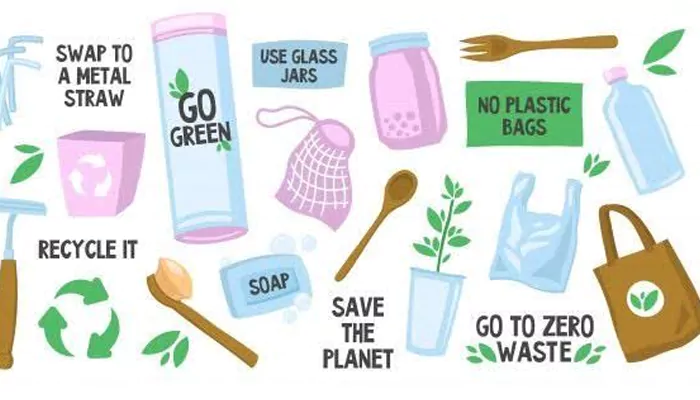
Small steps, big impact—your actions today can create a greener, healthier tomorrow.
We often find ourselves questioning whether our individual efforts to protect the environment truly matter. However, this mindset is misguided. Every single action counts—just as countless drops of water create an ocean, collective change begins with individual steps. If everyone believed in the power of one, the world would unite in safeguarding the environment. World Environment Day, observed annually on June 5th, is a powerful reminder of our shared duty to care for the planet. It encourages both individuals and communities to assess their ecological impact and take meaningful actions. This day isn’t just about grand gestures—it’s about consistent, mindful choices that build a sustainable future. Here are some simple yet impactful things you can do to make a real difference on World Environment Day and beyond.
Use Reusable Items
Landfills overflowing with single-use items pose a serious threat to the environment, contributing to pollution, greenhouse gas emissions, and long-term ecological damage. One effective way to combat this issue is by embracing reusable alternatives in our everyday lives. For instance, many people have started replacing plastic bags with eco-friendly jute or cloth bags—a small yet impactful change. The same principle can be applied to other items like coffee cups, water bottles, straws, and food containers. Reducing single-use plastic not only conserves resources but also prevents harmful waste from ending up in landfills or oceans.

Planting Trees
The rapid decline in tree cover due to deforestation has had a devastating impact on the environment, leading to issues like habitat loss, climate change, soil erosion, and rising levels of air pollution. Trees play a crucial role in maintaining ecological balance—they absorb carbon dioxide, release oxygen, purify the air, and provide shelter to countless species. To counter these harmful effects, it is essential for all of us to come together and take action by planting trees and nurturing them. Whether it’s in your backyard, a community garden, or a public space, every tree planted contributes to creating a cleaner, greener, and healthier environment.

Conserve Resources
In our everyday lives, we encounter numerous opportunities to conserve resources and contribute to a healthier, more sustainable environment. One of the most vital areas of focus is water conservation. By using water wisely, we help combat drought, reduce water scarcity, and ensure this essential resource remains available for future generations. Simple actions like fixing leaky faucets can prevent significant water waste.

Similarly, reducing carbon emissions is equally important—choosing to walk, cycle, or use public transportation instead of driving alone not only saves fuel but also helps cut down air pollution. Additionally, using household appliances like dishwashers and washing machines only when they are fully loaded conserves both water and energy. Turning off lights and electrical devices when not in use may seem like a small gesture, but collectively, such habits can lead to significant environmental benefits.
Local Produce for Food
When shopping for fresh fruits and vegetables, opting for locally grown produce is a smart and sustainable choice. Local produce requires significantly less transportation compared to imported goods, which means a shorter supply chain and reduced dependence on fuel-intensive shipping methods. This not only helps lower greenhouse gas emissions but also decreases your overall carbon footprint. Supporting local farmers further strengthens the local economy and ensures that you consume seasonal, often fresher and more nutrient-rich foods.

Compost Food Waste
Composting is a simple yet highly effective way to enrich soil while significantly reducing the amount of waste that ends up in landfills. By composting food scraps and other organic waste, you not only cut down on methane emissions from decomposing waste but also create nutrient-rich compost that enhances soil health. To start, it’s important to segregate your wet and dry waste. Kitchen scraps like fruit and vegetable peels, coffee grounds, and leftover food can be added to a compost bin. Over time, these materials break down into organic compost that can be used as a natural fertilizer for your plants.












